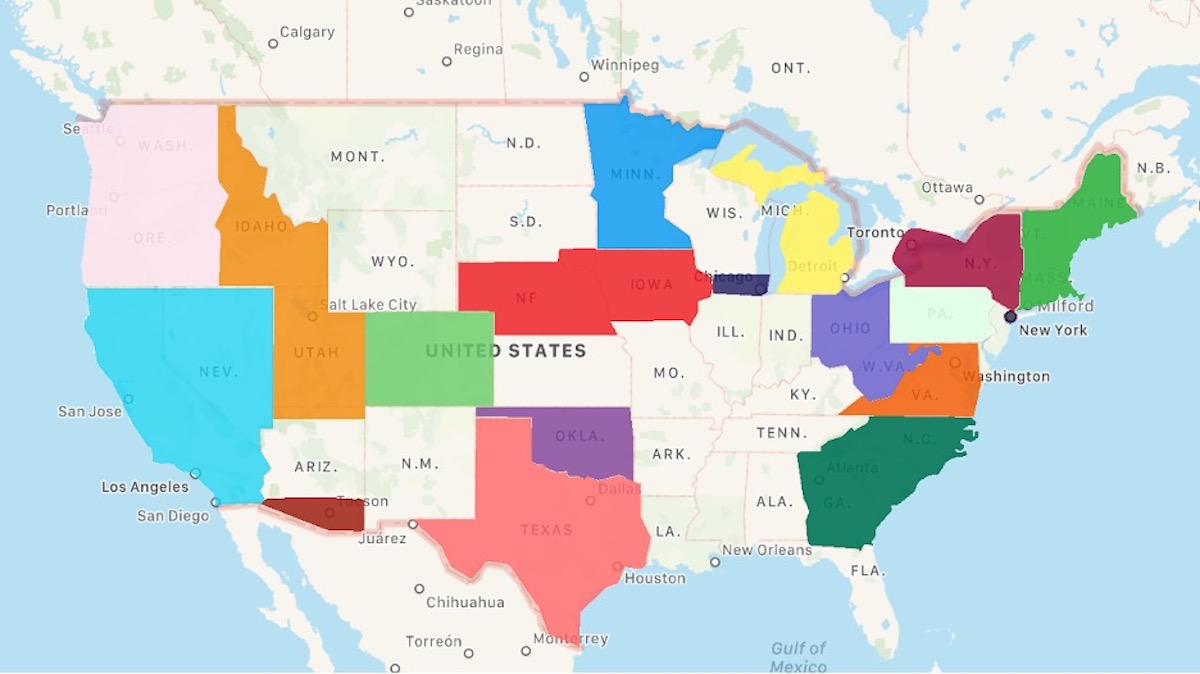The University of Nebraska at Omaha’s STEM TRAIL (Teaching, Research, And Inquiry-based Learning) Center, through support from the National Science Foundation (NSF), hosts the growing national professorial Network of Inquiry-Based Learning Communities (IBLCs) in mathematics. This network exists to provide and support professional development and collaborative experiences involving student-centered learning through inquiry to the community of mathematics educators in higher education. Participants who are K-12 teachers or educators in other STEM fields often find value in network events as well.
In 2019, a $299,999 NSF grant was awarded to a team headed by Patrick Rault, Ph.D., Haddix Community Chair of Mathematics, to establish the network and support faculty from several regions of the country in establishing their own IBLC, under the umbrella of the national Network of IBLCs. These regional IBLCs are based in Iowa-Nebraska, Michigan, Maryland-DC-Virginia, and New England. For example, the IBL Iowa-Nebraska Community (IBLINC) hosts workshops and book discussion groups, provides mentoring and course observations, and supports the creation of high-impact and open-source textbooks. Since October, over 300 educators have participated in community events.
Educators have been hearing for over a decade about a growing body of research which states that student-centered active and inclusive learning approaches are high-impact practices, resulting on average in a one letter grade increase in student grades. They also hear that the United States has a need for many more STEM majors than universities are currently graduating, and that merely shifting to active learning can fill much of the demand by retaining more students. These educators naturally ask “Who can I talk to about making the shift in my teaching?” By providing a sense of a small community, the network meets the needs of these educators. The local communities of practitioners develop trusting relationships, forming a community of transformation in which participants are comfortable sharing not only their successes in teaching but also their challenges. “Just as active learning meets students where they are, our communities meet faculty where they are” Rault says.
Now, in 2020, with support of a new $59,998 NSF supplemental award, the network is doubling in size to include eight regional communities. One of these communities has already been identified: the Upstate New York IBL Consortium, which Rault co-founded in 2014 under the support of a $102,210 award from the Educational Advancement Foundation. This supplemental award also supports the development of a toolkit of best practices for new communities in STEM to replicate the successes of these IBLCs. The first edition of this toolkit is expected to be released by December 2020, in time to support three new communities to be added to our network in spring 2021.
Tracie Reding, Ed.D., UNO STEM education and outreach coordinator, is joining the team this year to pilot a social network analysis on these communities, and to formalize the approach to selecting new communities to join the network. In addition, Rault was joined on the original project by UNO's Kelly Gomez Johnson, Ed.D., assistant professor of teacher education; and Paula Jakopovic, Ph.D., instructor of teacher education. Together they are studying the value that members find in the community.
These UNO faculty are also joined by Amy Ksir, Ph.D., U.S. Naval Academy; Christine von Renesse, Ph.D., Westfield State University; and Nina White, Ph.D., University of Michigan. As part of the project’s team of principal investigators, they support leadership teams of existing and coalescing IBL Communities by training workshop facilitators, providing leadership training, researching best practices, and sharing successes between communities.

While each IBLC is growing in population as more faculty find value in the community, there is also an increasing demand across North America to create more IBLCs. The map above shows the collection of coalescing and currently existing IBLCs known to the project team, as of the time of writing. Each IBLC is in a better position to understand the needs of instructors of the local region than a national organization can be. According to Rault, “we see our growing network of communities as a grassroots route to ensuring that every student can have a high-impact inquiry experience.”
More information about each IBL Community can be found at www.iblcommunities.org.